Supreme Court Blocks North Carolina From Enforcing Restrictive Voting Law
In a ruling that could have a real impact on the 2016 election, the Supreme Court has declined to grant a stay to a lower court ruling striking down a North Carolina law that tightened Voter ID laws and restricted early voting.
Thanks to another Supreme Court deadlock, North Carolina’s latest changes to Voter Registration and voting procedures will not be in effect on Election Day:
WASHINGTON — A deadlocked Supreme Court on Wednesday refused to revive parts of a restrictive North Carolina voting law that a federal appeals court had struck down as an unconstitutional effort to “target African Americans with almost surgical precision.”
The court was divided 4 to 4, with the court’s more conservative members voting to revive parts of the law. The court’s brief order included no reasoning.
North Carolina’s law, which imposed an array of voting restrictions, including new voter identification requirements, was enacted by the state’s Republican-controlled legislature in 2013. It was part of a wave of voting restrictions enacted after a 5-to-4 Supreme Court decision that effectively struck down a central part of the federal Voting Rights Act, weakening federal oversight of voting rights.
Civil rights groups joined with the Obama administration in filing suit against the law, arguing that, several parts of the law violated the Constitution and what remained of the Voting Rights Act. A trial judge rejected those claims in April, but in July a three-judge panel of the United States Court of Appeals for the Fourth Circuit, in Richmond, Va., disagreed.
The appeals court ruling struck down five parts of the law: its voter ID requirements, a rollback of early voting to 10 days from 17, an elimination of same-day registration and of preregistration of some teenagers, and its ban on counting votes cast in the wrong precinct.
The court found that all five restrictions “disproportionately affected African Americans.” The law’s voter identification provision, for instance, “retained only those types of photo ID disproportionately held by whites and excluded those disproportionately held by African Americans.”
This was so, the court said, even though the state had “failed to identify even a single individual who has ever been charged with committing in-person voter fraud in North Carolina.” But it did find that there is evidence of fraud in absentee voting by mail, a method used disproportionately by white voters. But the Legislature exempted absentee voting from the photo ID requirement.
The court also found that the early voting restrictions had a much larger effect on black voters, who “disproportionately used the first seven days of early voting.”
The law, the court said, eliminated one of two “souls-to-the-polls” Sundays when black churches provided rides to polling places.
In an emergency application filed 17 days after the appeals court ruling, state officials asked the Supreme Court to step in. Represented by Paul D. Clement, a former United States solicitor general in the George W. Bush administration, the officials challenged only the parts of the appeals court’s ruling that they said would create confusion in the coming election.
The state officials asked the justices to temporarily restore three parts of the law: its voter-ID requirements, the reduction of early voting days and preregistration of some teenagers.
In response, the Obama administration and civil rights groups said the state had moved too slowly to challenge the appeals court’s ruling and that undoing it would lead to mistakes and confusion.
They added that the state’s lawyers had earlier told the appeals court that the state could comply with a ruling so long as it was issued by late July. The appeals court ruled on July 29.
Changing course now, the administration said, “would inflict irreparable injury on minority voters.”
The state asked the justices to act because it said the appeals court’s approach would “threaten voter ID laws throughout the nation.”
The Obama administration responded that the appeal’s court’s ruling rested on “a careful appraisal of overwhelming evidence specific to North Carolina.”
“The only voter ID laws that the decision endangers are those proven through overwhelming evidence to have been adopted with racially discriminatory intent,” the brief said.
“This is a case about the use of race to achieve partisan ends.”
Justices Ruth Bader Ginsburg, Stephen G. Breyer, Sonia Sotomayor and Elena Kagan voted to reject the state’s arguments. Justice Clarence Thomas would have revived all of the contested provisions, while Chief Justice John G. Roberts Jr. and Justices Anthony M. Kennedy and Samuel A. Alito Jr. would have reinstated the voter ID and early voting provisions.
Election law expert Rick Hasan comments:
- It is no surprise that this stay was denied. It was always difficult to see where a fifth vote would come from, given four liberal Justices (Breyer, Ginsburg, Kagan, and Sotomayor) likely to be very skeptical of voter id laws and other laws that Republican legislatures have passed making it more difficult for people (especially people like to vote Democrat) to register and vote.
- The fact that this petition got four votes should be very depressing to those who have been hoping that perhaps Justice Kennedy and the Chief Justice would have had a change of heart on voter id laws as Judge Posner and Justice Stevens have since the Crawford case. The petition was exceptionally weak because North Carolina waited 17 days to file it and then claimed an emergency. So even apart from the merits, this was a weak case. And on the merits, we have a finding that the state of North Carolina engaged in intentionally racially discriminatory conduct. Even that was not enough for the conservatives to justify the 4th Circuit’s decision, at least temporarily (though, to be fair, the 4th Circuit reversed the factual finding of the district court on discriminatory intent, and they may not buy it). If Kennedy and the Chief are going to be in play in future voting wars cases, this stay order does not give an inkling of that.
- This also means that as these cases work their way up to the Supreme Court on the merits (there will be a case from Texas too, we’ve been promised, and more to come), there is very likely to be a 4-4 deadlock on the merits, meaning the Court won’t be able to do its work. It also means that how the Court handles not only voting rights but a whole host of issues depends on the outcome of the presidential election. The Supreme Court really matters.
- Finally, in the interim, this really empowers the lower courts, both the federal courts of appeal and state Supreme Courts. As Josh Douglas notes, if we were unfortunate to have a Trump v. Clinton case a la Bush v. Gore, the final word would be with those lower courts and not with the Supreme Court. And we could even have conflicting lower court rulings which the Supreme Court might be deadlocked to resolve.
It seems clear that one of the things that severely undercut the state’s request to the Supreme Court here was the fact that it argued that the lower court’s ruling had created an “emergency” situation to the extent that it purported to void significant portions of state election law so close to Election Day but that the request for a stay was filed a full seventeen days after the issuance of the lower court ruling. Although the Supreme Court didn’t make note of that fact in its brief ruling on the matter, if a matter is an “emergency” but a party waits nearly three weeks to file their request for a stay, it tends to undercut their argument that the timing of the ruling gives them insufficient time before Election Day to even get around to filing a request for a stay based on a supposed emergency. In reality, of course, the main reason that the stay was not put in place was due to the current make up of the Court. If Justice Scalia were still alive, it’s likely that he would have been the fifth vote for putting a stay in place for at least part of the ruling, although it’s worth noting that only Justice Thomas was in favor of placing a stay on the entire ruling, the remainder of the Court’s conservatives would have only granted the stay with respect to the lower court’s rulings on Voter ID and early voting, although one can make a persuasive argument that this is the most important part of the lower court ruling as it applies to the upcoming election. This isn’t the end of the legal proceedings in this matter, of course, since North Carolina can still appeal the full ruling from the Fourth Circuit to the Supreme Court. However, given the fact that the Court was divided 4-4 on the stay application, it seems pretty safe to assume that the result would be the same if the Court accepted the case for appeal and heard oral argument prior to the confirmation of a ninth Justice. The could, of course, decide to defer scheduling argument on the case until Justice Scalia’s vacant seat is filled, but
Practically speaking, this ruling is likely to inure to the benefit of Democrats in the upcoming election to the extent that it makes it easier for African-Americans and other minorities to vote. This is especially true with regard to the early voting provisions, which are typically used by African-American churches to organize people to vote, especially on certain Sundays prior to Election Day during which there are organized campaigns that in many cities include caravans from church to the closest early voting locations in an effort to maximize minority voter participation. To the extent that happens, it will work largely to the benefit of Hillary Clinton, who has been out-polling Donald Trump among African-Americans by overwhelming margins. Just as in 2008 and 2012, the greater participation in the process there is from this segment of the electorate in the election, the more it will benefit the Democratic candidate. Given the fact that the margins between Trump and Clinton are already razor thin, with Clinton leading by a half-point in a head-to-head match and 2.0 points in a four-way match. Maximizing minority turnout, in other words, could be the difference in deciding who wins North Carolina’s fifteen Electoral Votes and, ultimately, the election since it would be virtually impossible for Trump to win the election if he doesn’t hold on to every state that Mitt Romney won in 2012. Therefore, this decision is certainly good news for Democrats both in the statewide races in North Carolina this year, and the Clinton campaign. Whether it will be enough to make a difference remains to be seen.
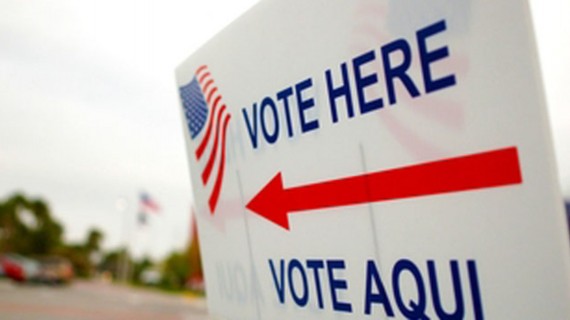

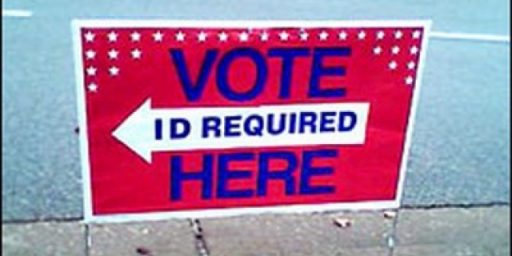
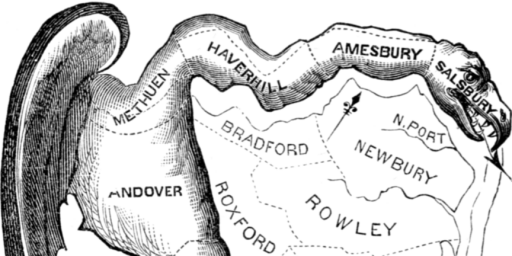
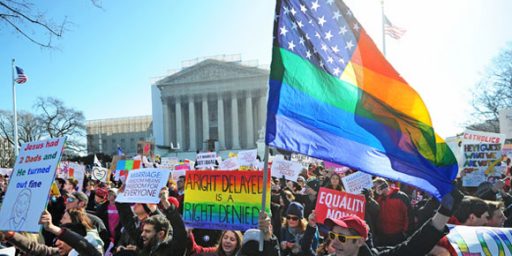
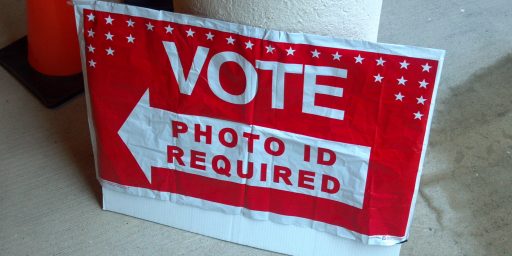

I wonder how the GOP would scream if they introduced mandatory online voting with smartphone app. Something that would shift the average voter’s age by 20 years most likely.
A death in time saves nine, I say. If it weren’t for Scalia demise, the North Carolin voter suppression package would have applied in all it’s infamy.
I thought that maybe Roberts or Kennedy would have realized that the South and the Republicans still wanted to suppress minority voting, but I guess it’s hard for a Supreme Court Justice to admit they are wrong.
At this point, it looks like the various circuits are all going to be mini Supreme Courts for a while. As far as North Carolina is concerned, the Dems can hope for an Electoral College win and maybe a Senate pick up, now that all North Carolinians will be allowed to vote.
The Trumpkins will be screeching that this proves there’s a plot to steal the election from Trump.
It seems that these judges are trying to mandate the number of early voting days. I remember not long ago that there no early voting days. These polling places usually require volunteers. More polling days would mean longer hours and more of a hardship on these people. And the election boards will have to scramble to find more people. Maybe these judges can volunteer to work at one during their three hour lunch recesses. The election boards usually have to pay some sort of fee to cover the use of the facility. More voting days means more cost. And guess who ends up paying for that ? Maybe these judges will donate some of their pay. Sunday voting ? Not here. Everything is closed here on Sundays, except for the churches and a fast food place that opens at 1:00 pm.
It is strange. People will go out and wait in line for hours to get in a concert, roller coaster, or some Christmas sale. But complain about a twenty minute wait to vote. Have we gotten so soft that we can’t even stand in a line for twenty minutes? I guess next these judges will require drive thru voting (super size that, please). Why don’t these judges require free coffee and donuts to be served ? That is what I want.
Voter id cards: I don’t have a problem either way. The vote early and often people are probably happy with this ruling.
Trump asked what African Americans had to lose by voting for him.
No need to look any further than this, if Justice Scalia had still been alive the Supreme Court would not have struck this down. Considering the kind judges Trump has said he would nominate, a court with his appointments would have decided in the same way.
A Democratic Super PAC should be making ads on this in North Carolina.
@Tyrell:
Not in my county.
Early voting takes place in the Board of Election office that is open with the lights on and the rent paid and the same staff.
@Tyrell:
Actually mail-in ballots – which his how most early voting takes place – saves money. Longer hours at physical locations on the day of could be covered by the savings from mail-in, and reduce crowding at high times allowing more Americans to vote.
Now, with the b.s. brushed aside, do you want Americans to be able to vote? Or only some Americans?
Like many others, I find it crazy that election day is not a national holiday.
And thank you, Mitch McConnell, for not doing your job and ensuring 4-4 rulings like these.
I love living in a state where we mail in our vote The only reason the rest of the country does not do the same is they can manipulate who can vote. The poor are the ones who are denied access as we have seen in videos all over the country where long lines were only in the poorest districts. I love my country but cannot help being ashamed of this. What are they afraid of ? We heard of the voter fraud and how minuscule it is and it happens on both sides so it is a wash anyway. Why trust those voter machines I find them very intimidating I like taking my time and not feeling as if I am holding someone up. I do not know this for fact but is it a coincidence that since I live in Wa that usually the race is over before my vote is ever counted so they do not care if I mail in or not. Makes me wonder if the Democrats and Republicans are just the same and do this purposely just to keep things the same FLATLINE
@michael reynolds: Certainly convenience and opportunity is desirable in voting, and anyone who is legally registered should have no problems thrown at them. If I can get my drivers license renewed in the mail now, I don’t see any reason not to be able to vote through the mail. How does that work, you have some sort of account set up with the
election board, and a pin number ?
Thanks for the information. I do like going to polling places and hanging out; talking to candidates, I also get a ton of free ink pens, fingernail files, candy, and flashlights. I also know the places that usually have the coffee and donuts.
“vote early and often”
@michael reynolds:
It’s easy: the only legitimate Americans are REAL AMERICANS (TM).
@Tyrell: Except that you can’t do the renewal-by-mail of your driver’s license in Illinois now.
They’re trying to save money, so they’re not sending out the forms.
-WaPo
@Tyrell:
I’m afraid I do not know how it works, exactly. The simple answer is that here in California my wife and I get ballots in the mail some time before election. We fill ’em out, mail ’em in, and democracy marches on.
But the issues around early voting and these Republican voter suppression laws are not about well-to-do old farts living in a northern California yachting town. I mean, from where I sit right now I can literally see my polling place. I can almost read the time on their clock tower.
The reason this is important is that many people do not have a three-hour a day job like mine, but work sixty hours divided between three jobs with hour-long bus rides in between, kids in school who need to be fed and helped with homework. Or they may be ill. Or they may be very elderly. Those people may have a very hard time getting to a polling place on the day of. Especially since Republicans usually make sure to have lots and lots of polling places in affluent white areas, and very few polling places in black or Latino or college areas.
There is no avoiding the obvious fact that the GOP has worked mightily to ensure that fewer Americans vote. Period, full stop, no question about it. Republicans do not want African-Americans, Latinos or college students to vote. They do not believe in democracy, they believe in keeping power solely in the hands of wealthy white folks, and these laws serve only that purpose and no other.